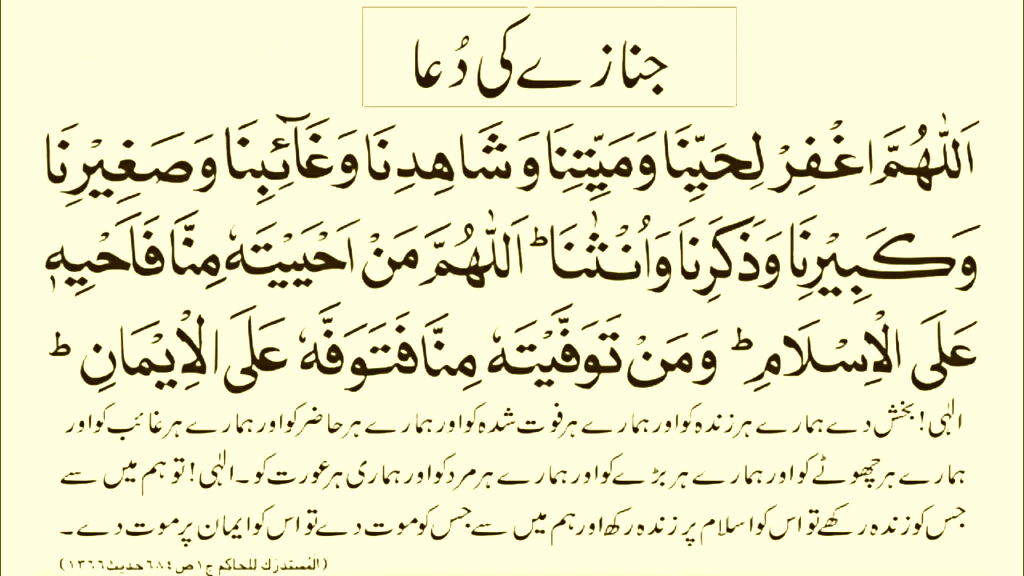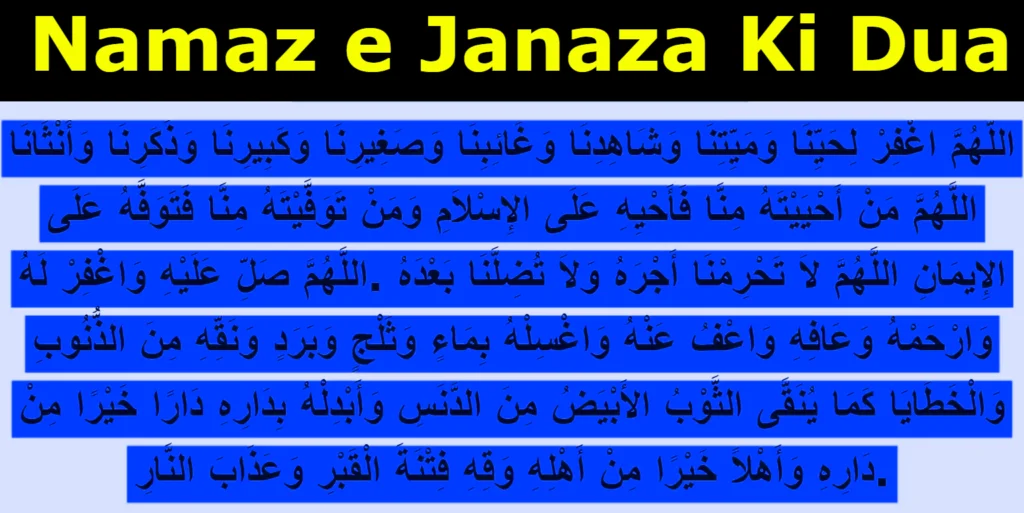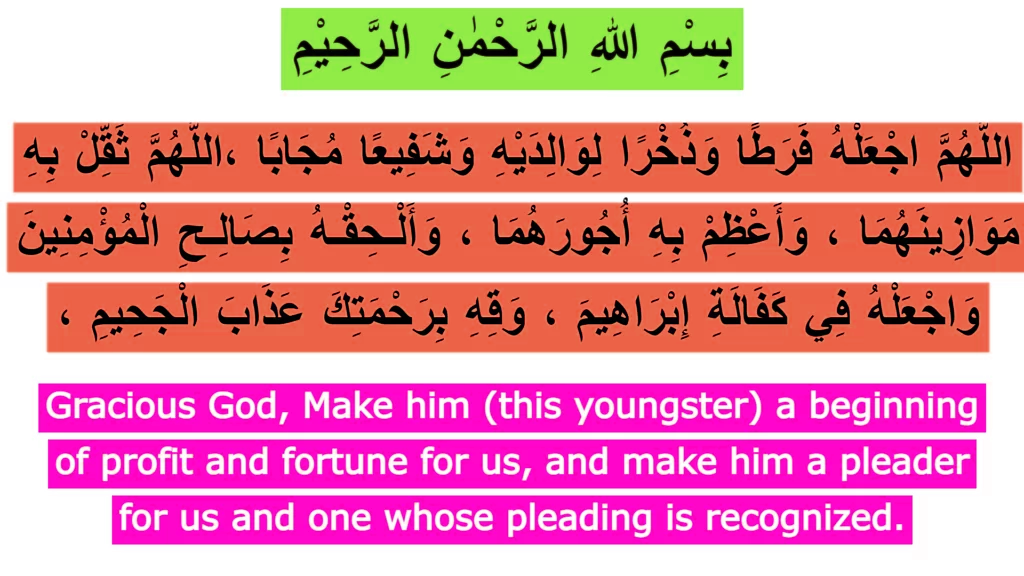The Namaz e Janaza, or funeral prayer, holds immense significance in Islamic tradition. It is a communal duty that brings together the faithful to offer their final respects to the departed. In this blog post, we will explore the profound meaning of Namaz e Janaza ki Dua, its importance, and the proper way to perform it. Whether you are a seasoned practitioner or someone looking to understand more about this sacred ritual, this guide will provide valuable insights and practical tips.
Namaz e Janaza ki Dua in Arabic Urdu English


Namaz e Janaza Dua for Child

What is Namaz e Janaza?
Namaz e Janaza, also known as the funeral prayer, is a key aspect of Islamic funeral rites. It is performed in congregation and is a collective supplication to seek forgiveness and mercy for the deceased. This prayer emphasizes the community’s responsibility towards the departed and underlines the unity and compassion within the Muslim ummah.
The Obligation of Farz e Kifaya
One of the unique aspects of Namaz e Janaza is that it is considered Farz e Kifaya. This means that if some members of the community perform the prayer, the obligation is fulfilled for all. However, if no one performs it, then the entire community is held accountable for the negligence. This underscores the collective responsibility and the importance of coming together to honor the deceased.
Performing Namaz e Janaza
Step-by-Step Guide
Performing Namaz e Janaza involves several steps that are important to follow precisely.
- Intention (Niyyah):
Begin with a sincere intention to perform the funeral prayer for the deceased.
- First Takbeer:
Raise your hands and say “Allahu Akbar”. This marks the beginning of the prayer.
- Recitation of Al-Fatihah:
Recite Surah Al-Fatihah silently. This is a supplication for guidance and mercy.
Subsequent Takbeers and Supplications
- Second Takbeer:
After saying “Allahu Akbar” again, recite the Salat al-Ibrahimiyya. This is a prayer for blessings upon Prophet Muhammad (PBUH) and his family.
- Third Takbeer:
Say “Allahu Akbar” and recite the Namaz e Janaza ki Dua, as mentioned earlier. This supplication seeks forgiveness and mercy for all, irrespective of their presence.
- Fourth Takbeer:
Finally, say “Allahu Akbar” once more and make a brief supplication for the deceased before ending the prayer with “Assalamu Alaikum wa Rahmatullah”.
Importance of Namaz e Janaza in Islam
Spiritual Benefits
Namaz e Janaza is not just a ritual; it holds significant spiritual benefits. It serves as a reminder of the transient nature of life and encourages the living to seek forgiveness and lead righteous lives. The communal aspect of the prayer also fosters unity and compassion among Muslims.
Reflecting on Mortality and Afterlife
Engaging in Namaz e Janaza allows individuals to reflect on their own mortality and the afterlife. It is an opportunity to remember that life is temporary and that one’s actions in this world have consequences in the hereafter.
Strengthening Community Bonds
By participating in the funeral prayer, community bonds are strengthened. It provides a support system for the grieving family and reinforces the idea that the community stands together in times of loss.
Common Questions About Namaz e Janaza
What Happens if No One Performs Namaz e Janaza?
If no one performs Namaz e Janaza, the entire community is considered sinful for neglecting this important duty. It is a communal obligation, and thus, it is crucial for at least some members of the community to participate.
Is Namaz e Janaza Performed for All Deceased Muslims?
Yes, Namaz e Janaza is performed for all deceased Muslims, regardless of their age, gender, or social status. It is an essential part of the Islamic funeral rites.
Conclusion
Namaz e Janaza ki Dua is a vital part of Islamic practice, emphasizing the importance of community, compassion, and reflection. By understanding and performing this prayer, we not only fulfill a religious obligation but also strengthen our spiritual and communal bonds.

